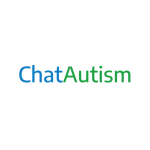Autistic people can struggle with working memory and often need more thinking time (often called ‘processing time’). Click here for more information on this.
They can also often struggle with planning and getting things done (executive functioning). For more information on executive functioning and ideas on what can help, see here:
- Autism Space- Autism and executive functioning skills
- Bristol Autism Support- Autism and executive functioning
Autistic people have a higher-than-average chance of also having another neurodevelopmental condition – such as:
- ADHD
- Dyslexia
- DCD (Developmental co-ordination disorder – also known as Dyspraxia): difficulties co-ordinating and carrying out physical movements
- Dysgraphia: Difficulty co-ordinating thoughts and physical movement for handwriting
- Developmental Language Disorder (DLD)
- Tic Disorder or Tourettes
Autistic people are also more likely than neurotypical people to identify as LGBTQIA+. This means they are more likely to be gay and/or to identify with a gender that is different from the gender that is on their birth certificate.
- Leicester LGBT Centre
- The Proud Trust
- National Autistic Society- Autism and gender identity
- NHS- Gender dysphoria
For the reasons above, plus autism associated difficulties, many autistic people find school to be a real challenge.
For links to all our school related articles, click on the link below:


